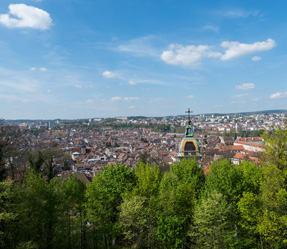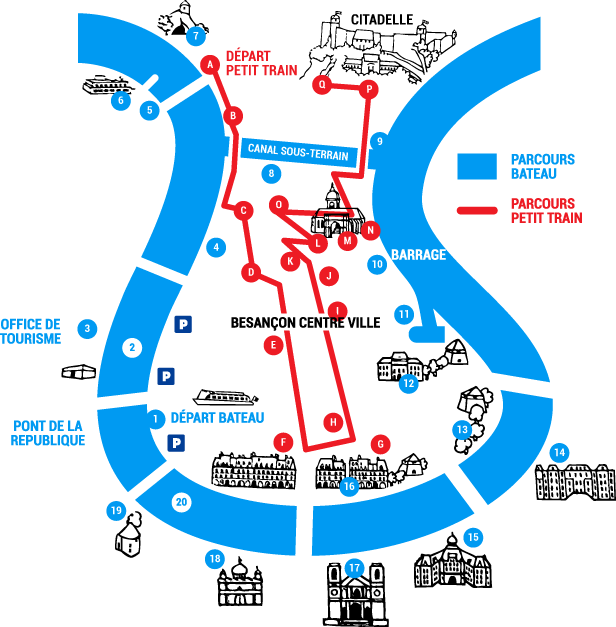
Cruise
Little Tourist Train Tour
1. Boat Departure
At the Pont de la République our boat is waiting for you.
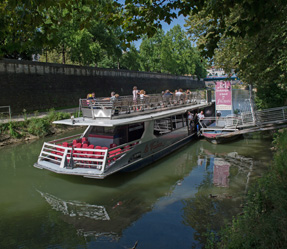
2. Lock of the Moulin St Paul
Passing through the first lock, this one is manual. Opening by the force of the arms by the crew members.
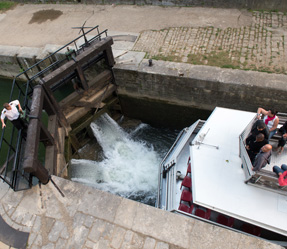
3. Parc Micaud
Admire the Parc Micaud (background), a nature area in the heart of Besançon. Ideal for a jog, a walk or a picnic.
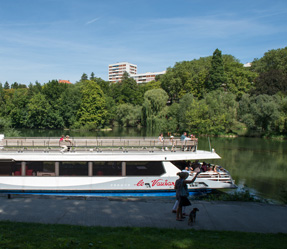
4. City of Arts and Culture
The Cité des Arts et de la Culture, the fruit of Kengo Kuma’s creativity, inaugurated in 2013. It houses the FRAC (Regional Fund for Contemporary Art) and the Conservatory.
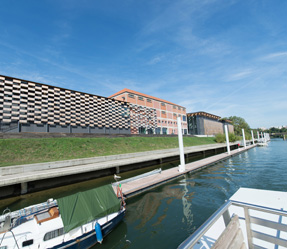
5. Rodia Cultural Complex
Built on stilts, the complex includes a 600 m2 esplanade and concert halls.
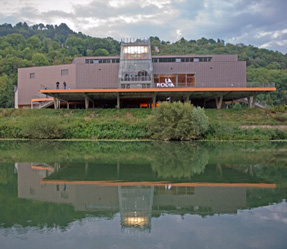
6. Rodhia Ceta
Former industrial pole of the city, these factories are now in abandon. Thirty years ago more than 5000 people worked there.
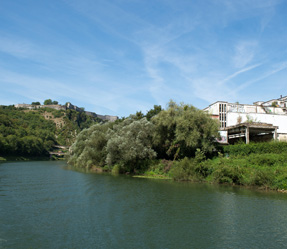
7. Tour de Rivotte
This defensive tower was built in the 17th century to protect the city from any attack.
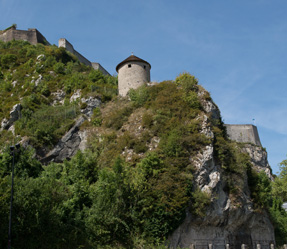
8. Tunnel under the Citadel
Is it possible to go under the Citadel? Yes, thanks to the 375 meters underground tunnel which the boat Le Vauban uses.
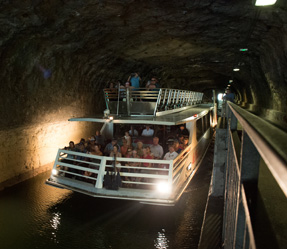
9. Tarragnoz Lock
Automatic lock, the boat goes down three meters to get back to the starting level of the river.
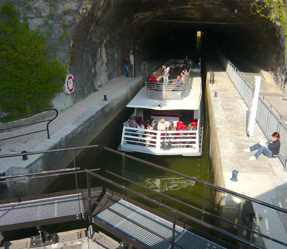
10. Tarragnoz Dam - Fortification
Breathtaking view on the fortifications of the Citadel (built by Vauban and listed as a UNESCO World Heritage Site since 2008) and on the Tarragnoz dam.
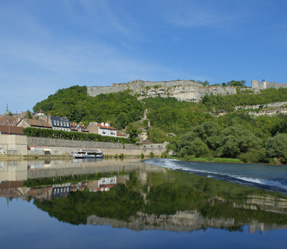
11. Water Station
Preferred place for walkers. Ideal to rest on the grass, on a bench, around a good picnic or during a nap.
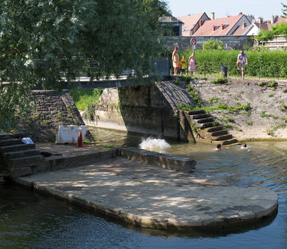
12. Prefecture
This former headquarters of the General Administration of Besançon, built at the end of the 18th century, has housed, since the Revolution, the prefecture services of the Doubs department and the Franche-Comté region.
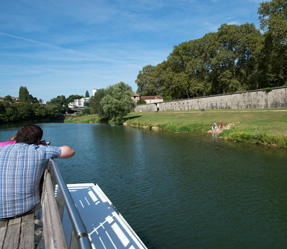
13. Bastioned Tower of Cordeliers - Chamars
Another defense tower built by Vauban in the 17th century. It ends the banks of the water station.
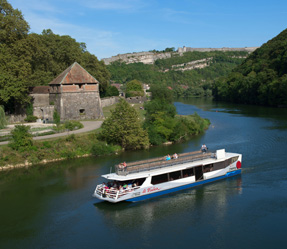
14. The City - ALC
Built on the banks of the Doubs, the business center houses a hotel and offices. Among other things, it is home of the Applied Linguistics Center.

15. University City
University residence close to the city center, it has been completely renovated. Its architecture blends perfectly into the historical setting of the city.
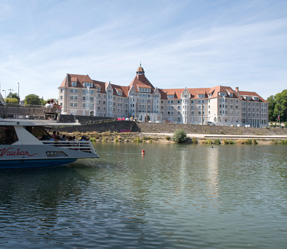
16. Vauban Quays
A true architectural treasure of Vauban, the quays are composed of a group of arcaded houses built between 1692 and 1695. Once the night falls, the quays are illuminated and another vision comes to you.
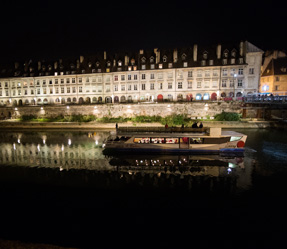
17. Sainte Madeleine Church
Built at the entrance of the Battant district, it was built, destroyed and restored several times since the 11th century. Inside, it is white and luminous. It houses, among other things, a life-size Way of the Cross.
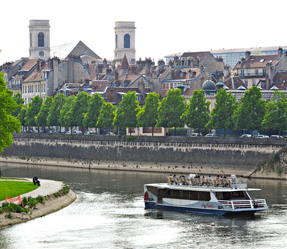
18. Synagogue
On the edge of the Quays you can admire the synagogue. An atypical style for a place of cult of the most ancient.
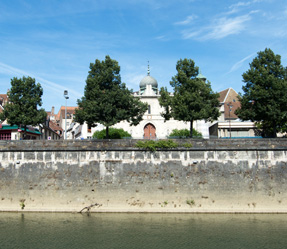
19. Pelote Tower
Built in the 15th century, this tower has been classified as a historical monument since October 21st, 1942.
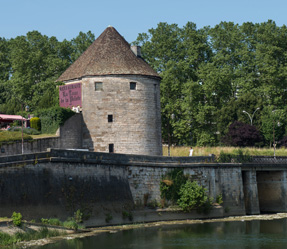
20. The Minotaur
This sculpture – bronze fountain of 7 meters – represents a minotaur which during floods of the Doubs is used as the Zouave of the Pont de l’Alma in Paris”.
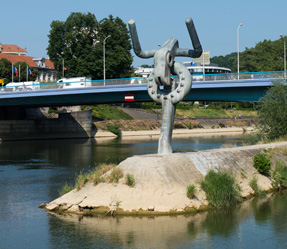
A. Departure Little Train (Rivotte parking lot)
Find the Little Train at its departure from the Rivotte car park.
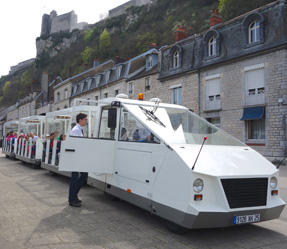
B. Rivotte Gate
A military building built in the 16th century under Charles Quint, it is one of the last two gates of the city. In 1893 the towers were pierced by two crosswalks.
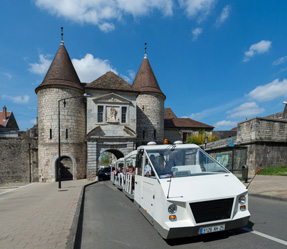
C. Rue Peclet - Rue des Martelots
Located at the corner of rue des Martelots and rue Peclet, the Alvizet hotel is a mansion. Its construction would be between 1620 and 1625.
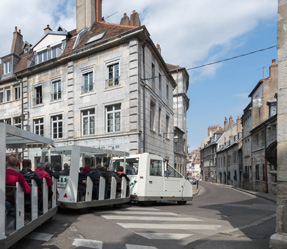
D. Jean Cornet Place - Fountain
The monumental fountain that decorates the Jean Cornet Place is graved with the slogan of Besançon: “UTINAM”, a Latin term that means “Pleasant to God”.
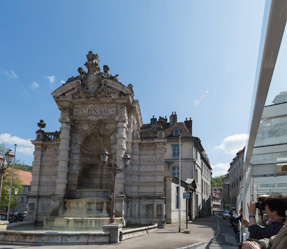
E. Rue des Granges
Stroll along the rue des Granges and admire the typical old buildings of the city center.
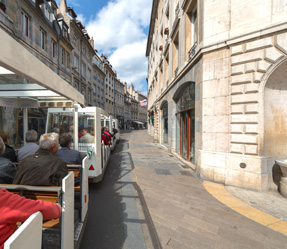
F. Rue de la République
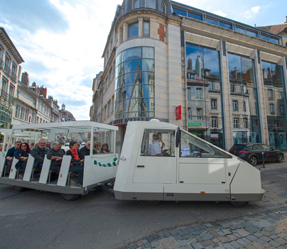
G. Place du 8 Septembre
Also commonly known as Saint Pierre Place, it takes its name from the date of the liberation of Besançon on September 8th, 1944.
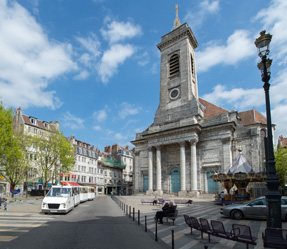
H. St. Pierre Church
Located in the heart of the city center, this church was built from 1782 to 1786.
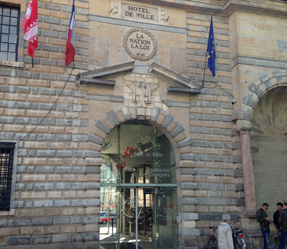
I. Granvelle Palace
The Granvelle Palace reflects the prestige of its builder, Nicolas Perrenot of Granvelle. It was built from 1532 on a huge plot of land in the heart of the city. Today it houses the Museum of Time.

J. Birth house of Victor Hugo
At the bend in the road you will pass in front of the house where Victor Hugo was born. Inaugurated in 2014, it is a museum dedicated to this great man from Franche-Comté.
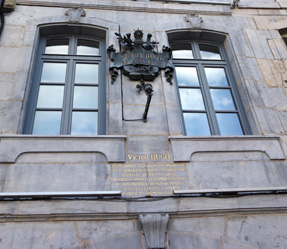
K. Square Castan
Located not far away from Victor Hugo’s birth house, this square inspired many local artists and poets such as Pierre-Joseph Proudhon or Charles Nodier.
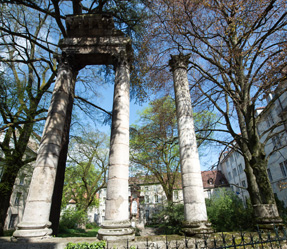
L. Black Gate
The Black Gate of Besançon is a 16.56 meter high Gallo-Roman triumphal arch built in the second century. It is entirely decorated with thin sculptures representing divinities from Greek and Roman mythology and scenes of fights.
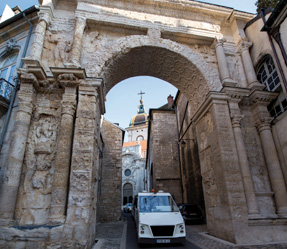
M. St Jean Cathedral
Church, basilica and cathedral at the same time, it was built in the 3rd century then rebuilt in the 9th and 11th centuries. The building is one of the few to have two opposing choirs.
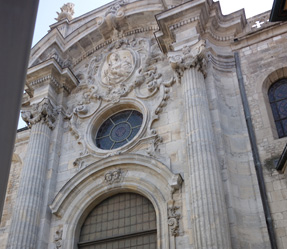
N. Astronomical Clock
Housed in the Saint Pierre Cathedral, the astronomical clock of Besançon is designed with a precise and complex mechanism of more than 30,000 elements and 11 movements.
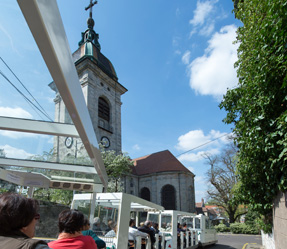
O. Rue des Fusillés
On the way up to the Citadel you can see a monument dedicated to the shot men.
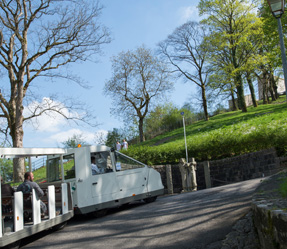
P. Citadel
Built by the famous architect Vauban, the Little Train will take you to the entrance of the Citadel, classified as a UNESCO World Heritage Site since 2008. You will have the opportunity to walk along the guard way and visit among others the museum of the Resistance.
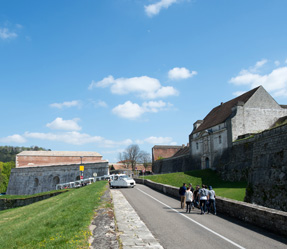
Q. View over Besançon
Take advantage of the wonderful view from the car park of the Citadel where the Little Train will drop you off.
